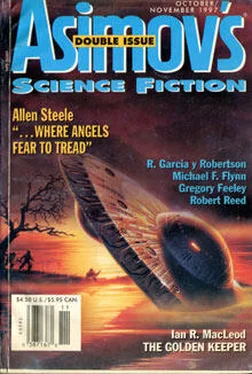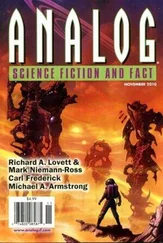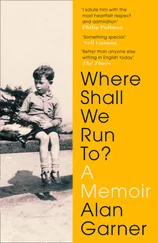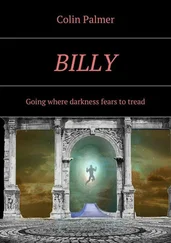Shortly after he and Crawford returned from the sandbar, Col. Ogilvy had held a briefing for the civilian advisors in the command tent. The facts themselves were clear: although the saucer inexplicably became visible at 1505, it had remained silent since then. Listening equipment set up around the craft hadn’t disclosed any new information, no hatches had been discovered, and aside from what Murphy alone had seen in that brief instant before its single porthole closed, the craft’s occupants hadn’t chosen to reveal themselves.
Cynthia Meredith Luna remained adamant that the craft was an alien spaceship from a distant star system, and insisted that it contained emissaries from an interstellar federation. The possibility that these travelers might be human, or at least human-like, only helped her embroider her revelation a little more: the human form wasn’t unique only to the planet Earth, but was widespread throughout the universe, and these “parahumans” were deliberately seeking out others of their own kind. We shouldn’t be confronting them with weapons, she charged, but had to find a more peaceful means of communication. She suggested that all the Rangers should immediately withdraw from the sandbar, and allow her and several other OPS psychics to congregate on the island to attempt telepathic communication.
That was when Ogilvy laid down his cards. Since the Pentagon believed that the object posed a possible threat to national security, it had been decided that an attempt would be made to force entry. Metal-cutting torches used by the Navy for submarine rescue work were being flown in from Groton, Connecticut, along with technicians trained in their use. At 2400 hours, they would be deployed on the sandbar, where they would attempt to penetrate the object’s hull.
Luna objected, and for once Murphy found himself in agreement, albeit for different reasons. They didn’t know what was out there, but the fact that it had deliberately dropped its cloak tended to argue that the craft’s occupants meant no harm. He needed more time to study the object; perhaps it hadn’t come from the Crab Nebula, but neither was it from Tennessee.
Ogilvy had held firm: there would be no further debate on this point. This mission was under Defense Department auspices, and his orders had come from the highest levels. The colonel ended the briefing by telling everyone that chow would soon be served at the roach wagon, and then he closed his notebook and walked away.
Sanchez collared Murphy just before he went in search of a hot and tasty MRE. Although the military was handling the investigation, the FBI had jurisdiction over civilians working on this incident; this meant OPS was now working for the Bureau. Because Murphy hadn’t yet received Top Secret security clearance, he would have to sign a document which would ensure that he wouldn’t disclose anything he had heard or seen to anyone who didn’t have similar clearance. So far as the public was concerned, the incident at Center Hill Lake never happened.
The document would soon be faxed to Sanchez. Once he received it, he would bring it to Murphy for his signature. One look at the agent’s face told Murphy that there was no question whether he would sign it. Not unless he wanted to risk losing his job, let alone being sent to prison.
So dinner had been indigestible and the company worse, and Murphy found himself alone once more. The night was cold, the wind rising now that the sun was down. He pulled up his parka’s hood and looked for a place to hide. The command tent had been taken over by Ogilvy and Sanchez, and he didn’t want to see them right now. He briefly considered taking a quick nap in one of the Army trucks, but realized that he wasn’t tired anyway. His eyes roamed to the distant sandbar, and the silver saucer captured within a circle of floodlights. All things considered, he was tired of looking at the bloody thing; just for a little whde, he wanted to get away from all this.
So he decided to take a walk.
It was surprisingly easy to leave camp. No one had placed a guard on him, after all, and he didn’t tell anyone that he was going away. A narrow paved road led uphill from the entrance to the picnic area; although a lone soldier stood watch at its gate, he didn’t object when Murphy told him that he wanted to take a short stroll and would be back soon. The sentry was there to keep people from sneaking in; since Murphy only wanted to stretch his legs, where was the harm? The sergeant informed him that there was a campground store a half-mile up the road, near the top of the hill. It was closed down, of course, but there was a Coke machine out front. Would Murphy mind bringing back a soda for him? Murphy didn’t mind: one ice-cold Dr Pepper, coming up.
The breeze seemed to let up a bit once he was away from the water, but it rattled the bare branches around him. He tasted the scent of winter pine as the night closed in around him; the lights behind him vanished entirely, and he threw back his head to check out the constellations. It would have been a rare treat, since light pollution in the DC area forbade any decent stargazing, yet the sky was still overcast. A dark night; even after his eyes adjusted to the gloom, he could barely see his own hand when he held it at arm’s length. Too bad.
Before he knew it, he’d reached the top of the road, where the mellow glow of a forty-watt bulb faintly illuminated a crossroad nestled in a saddleback between two short hills. There was a small general store at the junction, one that undoubtedly offered minnows, Moon Pies, and Orange Crush during season. The windows were shuttered, its door locked, but the porch light had been left on, illuminating the battered Coca-Cola machine between an empty bait tank and a pay phone.
Someone was using the pay phone.
At first he thought it was one of the soldiers, perhaps sneaking a call home to a wife or girlfriend, but when Murphy got closer he saw that the figure wasn’t wearing military gear. Indeed, he seemed to be underdressed for the weather: a dark wool suit and nothing more, not even an overcoat. His back was turned, but even from a distance Murphy could tell that he was shivering in the cold.
Strange. Maybe he was a hitchhiker who had lost his way. Yet all the roads leading to this area had been blocked by state police; even then, the nearest highway was several miles away. Murphy studied the man at the phone as he walked toward the porch. Perhaps he was from one of the lakeside houses; Ogilvy had told them that they were summer homes, but maybe one of them was occupied year-round. Yet if that was the case, why would a permanent resident be using a pay phone to…?
“Thank you… yes, that would be most helpful.”
In the stillness of the night, Murphy heard the stranger’s voice clearly. It held an odd accent that he couldn’t quite place: British-American, yet with a faint Asian inflection.…
“ Yes, operator, would you be so kind as to tell me the exact date? Yes, ma’am… today’s date. And the year, please.”
The date? The year? What, he didn’t have a calendar?
The porch steps creaked when Murphy put his weight on them. Startled by his sudden appearance, the stranger looked up sharply, all but dropping the receiver from his hand.
“Sorry,” Murphy said automatically. “Didn’t mean to interrupt.”
The man at the phone looked vaguely Eurasian. He stared at Murphy through wire-rim glasses, then seemed to remember what he had been doing a moment earlier. He raised the receiver again. “I’m sorry, ma’am… could you repeat that, please?”
Murphy walked over to the Coke machine, dug into his trouser pockets for change. He felt the stranger’s eyes upon him as he found a couple of quarters and fed them into the slot. He had to be a vagrant; his clothes were so old-fashioned, they had to have come from Salvation Army. Yet even the most destitute homeless men he had seen huddled on steam grates in downtown DC wore cast-off down coats or old baseball jackets. The last time Murphy had seen men’s apparel of this style was in old photos of his grandfather as a young man.
Читать дальше












